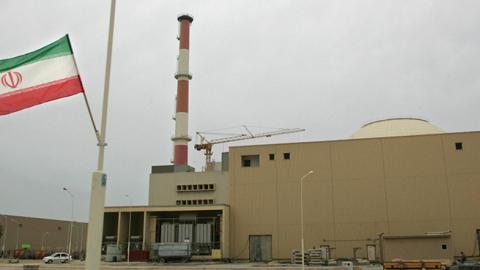The U.S. and its allies can prevent Iran from getting nuclear weapons, but only if they are clear about what the controversial 2015 nuclear deal actually says. Critics of the agreement, officially called the Joint Comprehensive Plan of Action, often say the deal gives Iran permission to acquire nuclear weapons after 10 years. Yet the stated premise of the plan was that Iran would never build or acquire nuclear weapons—ever.
An item in the deal’s general provisions states that the plan “will ensure the exclusively peaceful nature of Iran’s nuclear programme.” Another item reads: “Iran reaffirms that under no circumstances will Iran ever seek, develop, or acquire nuclear weapons.”
The world powers that negotiated the deal agreed to lift the sanctions against Iran only on the stated assumption that Iran never had, and never would have, a nuclear-weapons program. Although it’s unlikely any parties to the deal believed Iran’s nuclear program was only for peaceful purposes, they all found it diplomatically convenient to assert that it was. This diplomatic prevarication means that any time evidence is found suggesting Iran is trying to produce or acquire nuclear weapons, the U.S. may feign shock at being deceived. And without violating what it agreed to in the nuclear deal, the U.S. can announce that it will do whatever is necessary to ensure that Iran will not succeed in acquiring nuclear weapons.
Nothing in the agreement precludes the countries that signed the deal from acting to prevent Iran from acquiring nuclear weapons. Since Tehran had insisted that it did not have a nuclear-weapons program, the regime cannot claim that its pursuit of nuclear weapons was authorized by the Joint Comprehensive Plan of Action.
The problem of stopping Iran is therefore not a legal one. The question is whether the U.S. and other powers have the tools to compel Iran to abort its nuclear-weapons program, and whether they have the will to use them. Are the great democracies determined enough to impose decisive economic sanctions or to encourage internal opposition to the Iranian revolutionary regime? What about military force?
The U.S., Germany, France and Britain no doubt have the power to end Iran’s nuclear-weapons program. If they cut off all communication with the country—flights, telephone, internet, banking—along with the countries that would follow their leadership, Iran would be compelled to yield regardless of what China and Russia might do. And Beijing and Moscow would not be enthusiastic about standing against the West’s actions to defend Iran.
The democracies don’t need to commit to changing the Iranian regime, or to collaborate actively with Iranian dissidents. Even moderate political and social support by the U.S. and Europe for Iran’s internal opposition could scare the regime into postponing its efforts to get nuclear weapons.
No military attack, even by the U.S., could reliably destroy all of the Iranian weapons-production facilities, but complete destruction is not necessary. Partial elimination might be enough to convince the regime that rebuilding would not be worthwhile because they could be attacked again. And a successful attack could also undermine the Iranian security services’ control of the population.
The decisive question is how strongly the U.S. and the other democracies are determined to prevent Iran from having nuclear weapons. If they have the will to do so, they have the necessary power, and the nuclear deal is not an impediment.
This is not a defense of the Iran deal, which simply postponed a showdown for a decade or so. This delay ended the momentum of the sanctions regime against Iran that had been gradually built over years. And it means that when a confrontation with Iran finally comes, the regime will be much closer to producing numerous nuclear weapons than when the deal was made. On the other hand, the delay also gives more time for the mullahs to fall before they can obtain nuclear weapons—and more time for the democracies to build up courage and determination to prevent the regional nuclear arms race that would follow Iran‘s acquisition of the bomb.
President Trump does not have to solve the Iranian nuclear-weapon threat during his first term. The deadline for building the coalition with the strength and determination to stop Iran will come after 2020. But he would be wise to use the term to develop the American and international understanding and policies that can create the will and power to stop Iran.

















